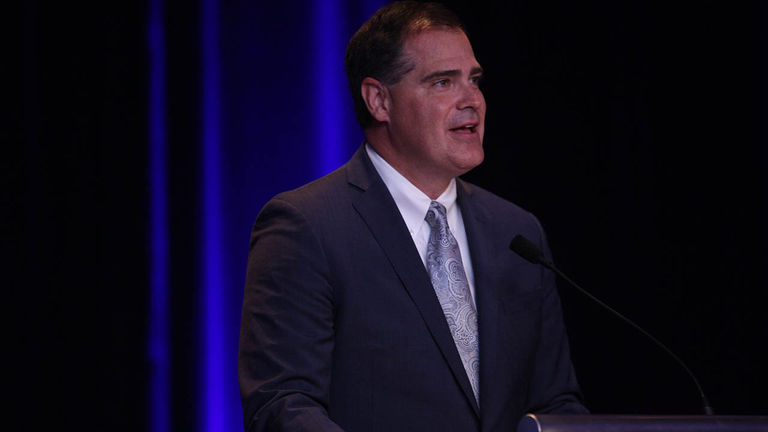ASTA’s decision to change its name from the American Society of Travel Agents to the American Society of Travel Advisors signals the shift the agency community has undergone in recent years and better defines the services advisors provide, according to ASTA president and CEO Zane Kerby.
“This name change more accurately describes the value you provide consumers and is a clarifying declaration of who we work for: the traveling consumer,” Kerby told ASTA members during the association’s Global Convention at the Washington Hilton this week.
The name change is the second in ASTA’s history. The society was founded in 1931 as the American Steamship and Tourist Agent Association. Ten years later, agents’ dependence on selling steamship travel had declined as their product portfolios expanded, and a name change was proposed. It was largely accepted — with the caveat that the acronym stay the same. Thus, the American Society of Travel Agents became the group’s moniker of choice.
“Today, 77 years later, there are striking parallels,” Kerby said. “Our business [and] income has expanded, and the ASTA name has gained even more strength.”
 Zane Kerby, ASTA president and CEO
Zane Kerby, ASTA president and CEO
Credit: 2018 American Society of Travel AdvisorsASTA decided on the change after comprehensive consumer research, which included polling thousands online and holding focus groups in cities around the U.S. In addition to asking consumers about their travel habits, ASTA tested numerous terms used to describe agents — such as advisor, specialist, agent, planner, expert, consultant, strategist, designer and curator — to see which consumers felt best described them.
“Advisor” was the clear winner in online polling, says Kerby, and feedback from individuals in focus groups further solidified that it was the right choice.
“One person said, ‘You know, it isn’t really clear who an agent works for. Sometimes they work for themselves, sometimes they work for a specific company. When I think of an advisor, I think of someone who I would engage to work for me,’” Kerby said.
ASTA’s board unanimously voted in favor of the change. In addition, the National Association of Career Travel Agents (aka NACTA) will be rebranded as the ASTA Small Business Network.
In conjunction with the new ASTA name, Kerby also revealed a new ASTA logo for the first time at the convention. He called it “concise, simple and memorable.”
“We wanted something that would quickly capture the attention of stakeholders and keep it, particularly as we work to build brand awareness with consumers,” Kerby said.
In conjunction with the changes, ASTA is launching a new digital marketing campaign, “We’ll take you there,” with videos that will be targeted to consumers on Facebook and YouTube. It features ASTA’s new logo and directs consumers to TravelSense.org, the society’s consumer-facing lead-generation website where clients can find advisors. The site will be updated later this year with a cleaner look and new features, such as a live chat.
ASTA’s name change was met with support from both suppliers and agents at the convention.
It really does a better job of describing who we are today.
Bob Gilbert, head of business development for North America with technology company eRoam, agreed with Kerby that the name change marks an evolution of the agency landscape.
“I think that as you look at the history of the travel agent, years ago the word ‘agent’ worked, but that really goes back to the ’70s and ’80s,” Gilbert said.
Today’s agents, though, are much better trained, he says.
“They’re in it for the long haul,” Gilbert said. “They want to really understand their client, and to provide all of the information that they can to ensure they remain relevant with their client and retain their client.”
Eric Maryanov, president and CEO of Los Angeles-based All-Travel, agreed.
“I think it’s long overdue,” he said. “It really does a better job of describing who we are today. I really like the fact that ASTA’s taken the lead to change the message for the industry as a whole.”
Maryanov also saw another potential positive from the name change: It could open the door for more agents to start charging service fees now that they are defining themselves as “advisors.”
Also during the convention, ASTA celebrated the first 80 graduates of its Verified Travel Advisor initiative. The program, which consists of nine modules, was introduced at last year’s convention. Graduates were given diplomas on stage.
Outgoing ASTA chair Jay Ellenby, president of Safe Harbors Business Travel in Bel Air, Md., introduced members to the society’s new chairman, David Hershberger. Hershberger, previously the executive committee’s vice chair and secretary, is the president of Prestige Travel/Travel Leaders in Cincinnati.
 ASTA chair Ellenby and new chair David Hershberger, president of Prestige Travel/Travel Leaders in Cincinnati
ASTA chair Ellenby and new chair David Hershberger, president of Prestige Travel/Travel Leaders in Cincinnati
Credit: 2018 American Society of Travel AdvisorsGoing forward, one of his focuses will be increasing membership to ASTA.
“We are not taking our foot off the gas,” Hershberger said. “We’re going to keep moving, and maybe even push down a little bit harder.”
The Details
American Society of Travel Advisors
www.asta.org